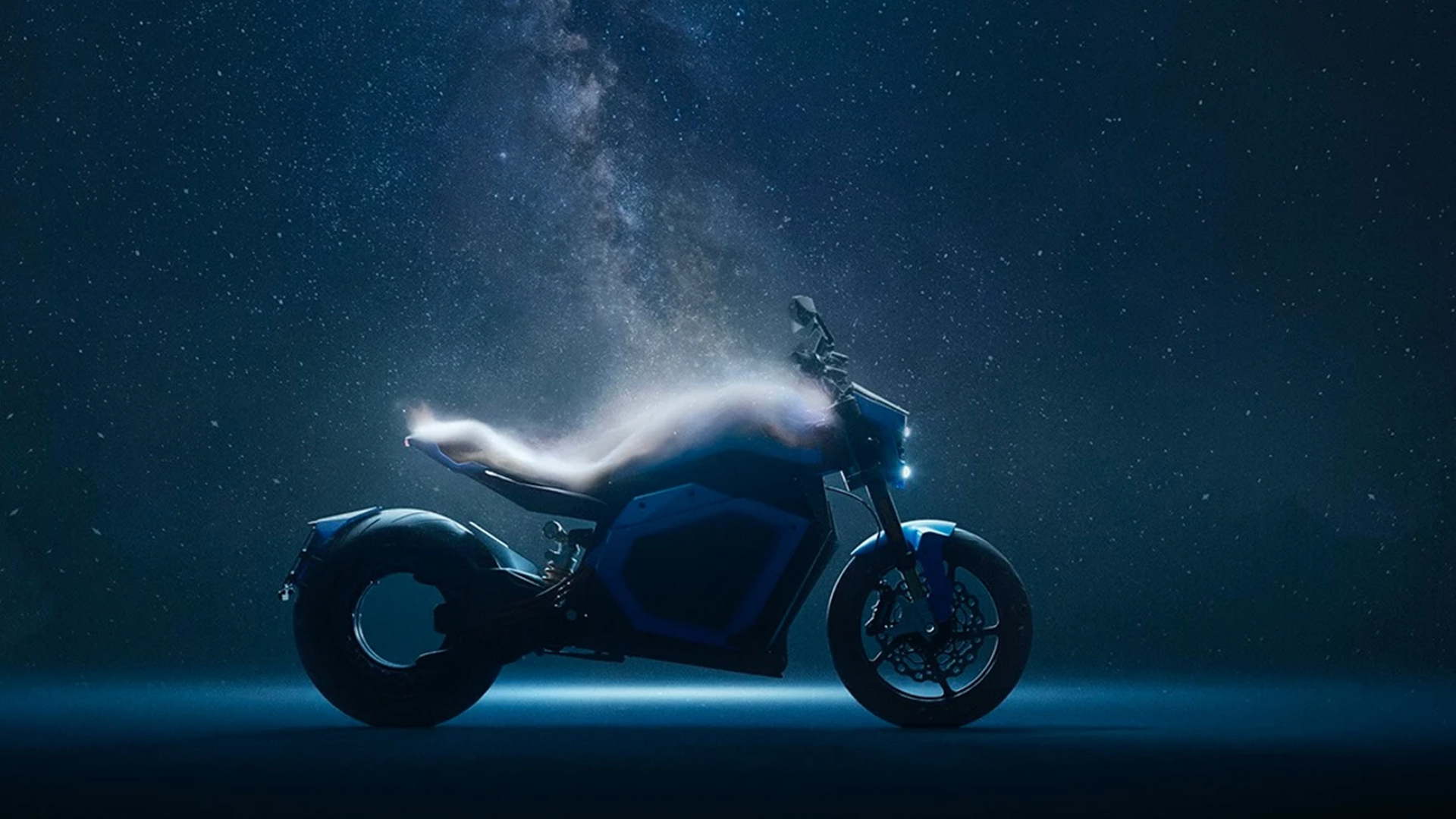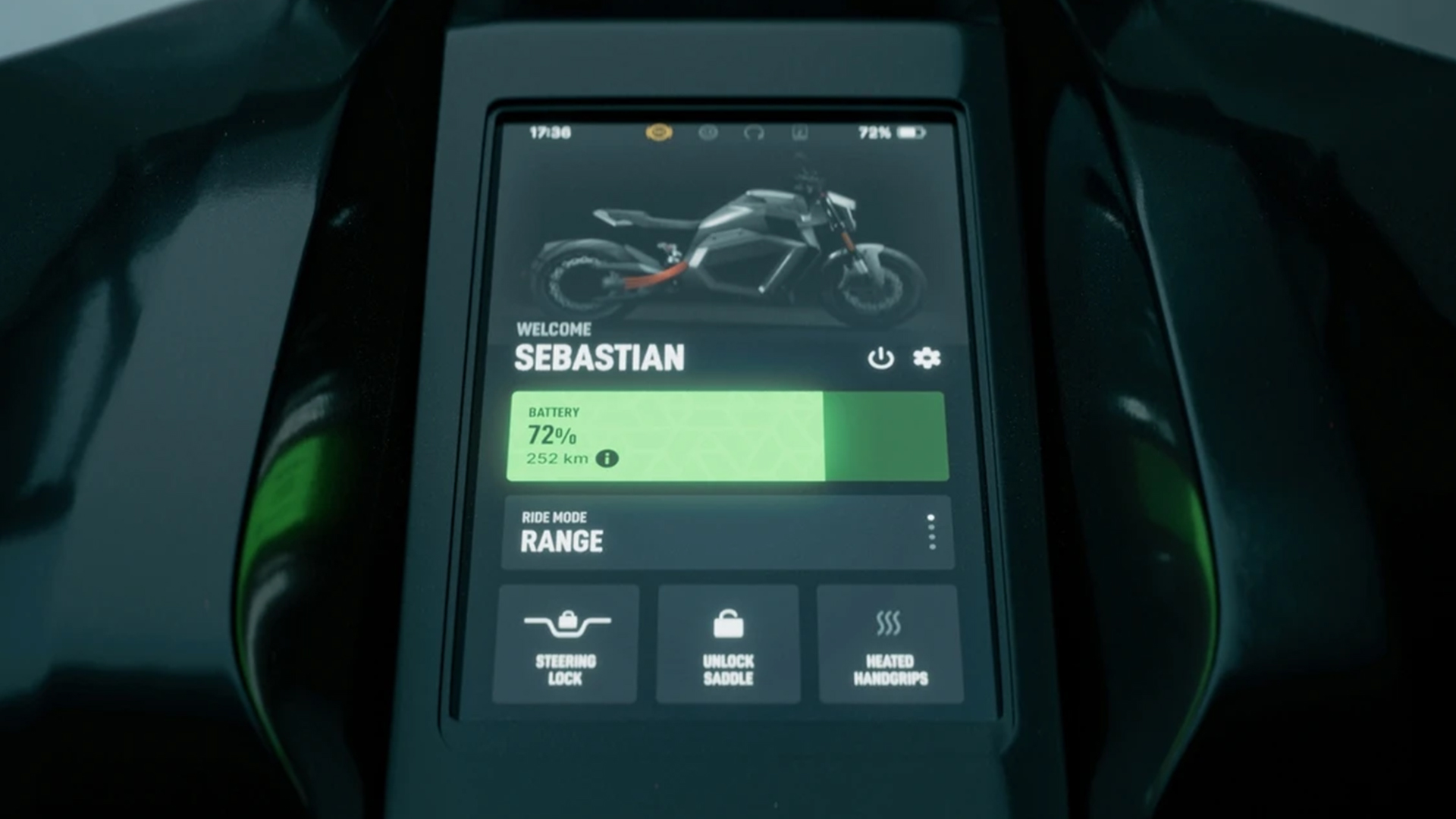Verge Motorcycles will soon get smartphone-style updates and Unreal gaming tech
Starmatter software will personalize the electrified ride

Verge Motorcycles has long been at the bleeding-edge of the electric superbike scene, literally reinventing the wheel with its powerful TS model that sees the electric motor embedded into the rear hubless rim. Zero moving parts, maximum style points.
Now, Verge wants to take things one step further by offering arguably the most advanced HMI (human-machine interface) found on any motorcycle, anywhere, with the announcement of its Starmatter software and intelligence platform.
Constantly connected, Starmatter will allow OTA updates, meaning customers can access new functions and improve their motorcycle over time, without the need to visit a dealer.
So far, so Tesla. But in addition to this, Verge states that its future electric motorcycles will "utilize artificial intelligence and machine learning in the processing of data collected by advanced sensor technology".

Full details on this side of things are a little thin on the ground, with Verge only stating that it has a suite of sensors, including accelerometers, GPS, 4G and Wi-Fi technology. This will pair with advanced machine learning to ensure the bike performs at its best and remains as safe as it possibly can be.
Furthermore, Verge has enlisted the help of Epic Games and its Unreal Engine to create the graphics and user-experience found on the large user-interface embedded into the motorcycle’s "tank" area.
"With Starmatter, we want to revolutionize the perception of the life cycle and intelligence of motorcycles," Verge CTO Marko Lehtimäki explain.
Sign up for breaking news, reviews, opinion, top tech deals, and more.
"Typically, a vehicle is at its best when new, while smartphones, for example, gain completely new features that significantly improve their functionality year after year. We want to bring the same philosophy to the vehicle industry and guarantee Verge’s customers an intelligent and personalized riding experience, as well as the best possible version of the bike at all times,” he adds.
At one with the machine

The idea is that Starmatter will allow Verge to push any significant performance upgrades to its machines via OTA updates and receive diagnostic information, allowing it to potentially predict problems before they happen.
On top of this, users can gain full, granular-level control over how the bike accelerates and brakes, the speed it charges at and the way it delivers its instantaneous torque.
That said, a lot of this kind of functionality is already available with electric motorcycles, with the likes of Harley-Davidson offering numerous rider modes and rider customization with its LiveWire model and BMW providing similar control via the futuristic HMI and accompanying smartphone app found on its CE 04 model.
However, Verge claims that so far, connected motorcycles have only really operate at "a diagnostic level", not making the most of update opportunities and the potential to offer customers additional content.
What’s more, Verge’s proposed machine learning could start to see true personalization of a motorcycle – one that gets to know its rider over time and begins to automatically adjust the riding modes depending on the stretch of road ahead or how the user is behaving on a particular day.
You might also like

Leon has been navigating a world where automotive and tech collide for almost 20 years, reporting on everything from in-car entertainment to robotised manufacturing plants. Currently, EVs are the focus of his attentions, but give it a few years and it will be electric vertical take-off and landing craft. Outside of work hours, he can be found tinkering with distinctly analogue motorcycles, because electric motors are no replacement for an old Honda inline four.